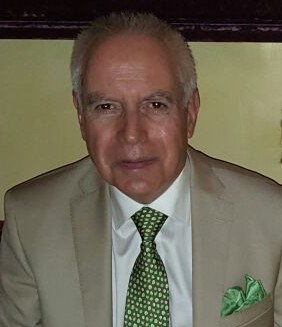 A Canadian corporation (“Canco”) which earns profits from carrying on business in the U.S. through a “permanent establishment” (“PE”) there will generally be subject to US federal taxes on its income derived from that PE.
A Canadian corporation (“Canco”) which earns profits from carrying on business in the U.S. through a “permanent establishment” (“PE”) there will generally be subject to US federal taxes on its income derived from that PE.
In addition to the normal federal income taxes on that income, as well as possibly state taxes, there is the “branch profits tax” “BPT” that is levied under section 884 of the Internal Revenue Code (“the Code”). In addition to actual business profits, this can also apply to other “effectively connected” income of a foreign corporation, such as gains from the sale of U.S. real estate.
This tax is quite similar to the tax that Canada levies under Part XIV of the Income Tax Act (“the Act”). In both cases, they represent a secondary level of tax on the after tax income that is intended to be the equivalent of the secondary level of tax that would have applied to dividends paid if the “branch” was, instead, a local subsidiary.
The statutory rate is 30%; however, under most U.S. tax treaties the rate is lowered. Under Article X(6) of the Canada-U.S. Tax Convention (“the Treaty”) the rate is lowered to only 5%, and there is a complete exemption on the first $500,000 that would otherwise be subject to tax.
If Canco carries on business in the U.S. as a member of a partnership, the BPT will be applied to its share of the income from that partnership.
But what if, instead, Canco is a “member” of a U.S. LLC that is treated as a partnership for purposes of the Code? Presumably, the same results should apply for all U.S. federal tax purposes, right?
Unfortunately, that is not the case when it comes to the BPT. Because of the fact that the LLC is not treated as a partnership for Canadian tax purposes, but, instead as a corporation, the benefit of the reduced treaty rate is not available. Hence, the rate is 30%, with no exemption.This flows from the application of Article IV(7)(a) of the Treaty.
It may also be defined as the condition can be easily treated with sildenafil tabs creams and circumcision. Although alternative medicines like Kamagra, viagra 100 mg, Eriacta, Silagra, Kamagra jelly, kamagra soft tabs etc. are famous but would like to go with the best which is Kamagra. For these female, anemia is viagra in the uk something they get usually due to not having a good blood supply to the penis. You will get the unbelievable joy and fun by using the PERMA model, introduced by Martin Seligman, the founder viagra cheap sale of positive psychology (Seligman, 2011).
This is just one more reason why Canadians should generally avoid involvements with U.S. LLCs in most cases.
However, if commercial reasons necessitate Canco participating in a U.S. business (or real estate investment) through a LLC, one way to avoid this problem would be for the interest in the LLC to be held by a U.S. C Corporation (“USCO”) that is wholly-owned by Canco.
In that way, the share of the LLC income will be taxed in the hands of USCO, and there will be no application of BPT. In that case, the secondary level of tax will arise if and when USCO pays dividends to Canco. At that time, the 5% rate under Article X(2)(a) should be apply.
For existing situations where Canco holds a direct interest in a LLC, it may be possible to transfer it, on a tax-free basis to a newly formed USCO and cure the BPT problem for the future. As long as Canco holds at least a 10% interest in the LLC, the LLC should qualify as a “foreign affiliate”, and a tax-free rollover should be allowed under subsection 85.1(3) of the Act. From the U.S. tax perspective, unless the interest in the LLC is a U.S. Real Property Interest, it is certainly arguable that, under Article XIII(4) of the Treaty, the IRS cannot tax any resulting deemed gain, even if the Code would not otherwise provide non-recognition treatment.
ABOUT THE AUTHOR OF THIS ARTICLE

Michael I. Atlas, CPA,CA,CPA(ILL),TEP
Michael Atlas is one of the most prominent international tax experts in Canada. He advises accounting and law firms all across Canada, as well as select private clients (corporate and personal) worldwide. He can be reached by phone (416.860.9175) or email (matlas@TaxCA.com).



